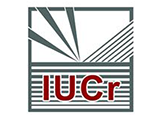
The International Union of Crystallography (IUCr) is delighted to announce the first issue of a new fully open access journal called IUCrJ.
IUCrJ is a new and exciting open access journal in the field of crystallography, aimed at a wide audience of scientists including biologists, chemists, physicists and material scientists. IUCrJ will publish a full range of focused and engaging articles, from papers on all aspects of the sciences and technologies supported by the IUCr via its Commissions, to exciting short commentaries highlighting the background and guiding forces behind some of the most high-profile research currently taking place today.
Editor-in-Chief Professor Samar Hasnain, Faculty of Health and Life Sciences, University of Liverpool, UK said, “IUCrJ should become the natural home for reporting breakthroughs and ‘full’ science reports rather than simply a structure or how it was determined”.
The launch of IUCrJ coincides with the International Year of Crystallography (IYCr2014) declared by the United Nations to celebrate 100 years of progress following the first Nobel Prize related to crystallography, awarded in 1914 to Max von Laue. The International Union of Crystallography (IUCr), working with UNESCO, is proud to be the custodian of the IYCr2014 and has set up plans for major initiatives during the year.
Professor Hasnain went on to describe how, “Lawrence Bragg, who established the basis of X-ray crystallography, shared the Nobel Prize with his father William Bragg in 1915 at the age of 25. This second Nobel Prize related to crystallography was quickly followed a third, awarded to Charles Glover Barkla in 1917. Lawrence Bragg helped create the first international journal dedicated to crystallography, Acta Crystallographica, and worked to establish the IUCr as a member of the International Council for Science (ICSU). He was elected by the General Assembly of the first IUCr congress in 1948 as the first President with Max von Laue as the Honorary President. Paul Peter Ewald, who had also played a major role in the establishment of the IUCr, became the founding editor of Acta Crystallographica and remained its Editor until 1959. In the tradition established by Bragg, Laue and Ewald, we are pleased that many of the leaders of our hugely expanded and successful field have volunteered to serve on the editorial and advisory boards of IUCrJ, bringing together all of the expertise that only the IUCr can call upon”.
For more information or to submit an article, go to http://www.iucrj.org/
























